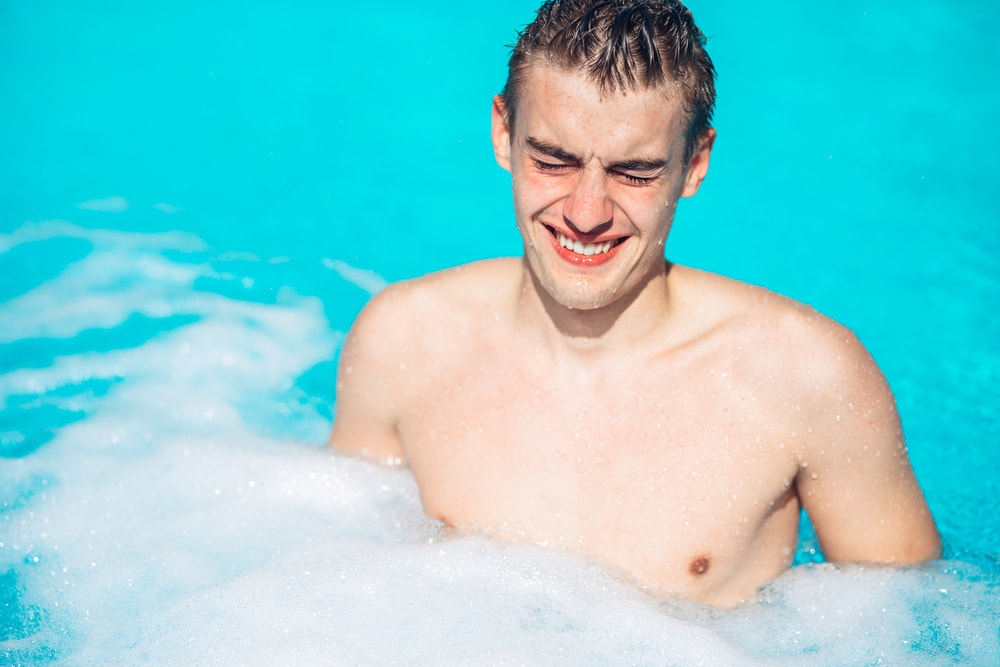Every season brings different environmental conditions and concerns for contact wearers. Continue reading for a look at precautions to consider for summer contact wearers. What’s different about wearing contacts in the summer?While there is nothing especially different about wearing contact lenses in the summer, the weather and activities you do may vary and affect your eyes. Anytime something affects your eyes, it also has the potential to affect your lens wearing. During the summer, the following things may affect your eyes and contacts: Hot weather: The warm summer weather may increase the risk of dry eyes. In addition to the climbing temperatures, air conditioning blowing in your face can also increase dry eye symptoms. If you have dry eyes, wearing contacts may be more difficult. Your eyes may become irritated, red, and scratchy. Travel: When we travel, we are out of our regular routine. Some people may get too busy while traveling to maintain the proper lens care. You may also not have access to the same products to take care of your lenses. Swimming: Swimming in the lake, river, and ocean with your contact lenses still in can spell trouble. Microorganisms may live in the water and lead to an eye infection. Summer allergies: Springtime is not the only season for eye allergies. Summer may also mean an increase in common eye allergy symptoms, such as itching, redness, and tearing. Wearing contacts when dealing with eye allergies can be challenging. Wildfires: Unfortunately, summer is often wildfire season in some parts of the country. Smoke in the air can irritate the eyes, and that may be worse for contact lens wearers. Tips on wearing contacts during the summerWith proper care and handling, you can reduce your risk of developing complications and problems due to contacts. Many of the tips for caring for contacts apply all year, but there are a few additional things to consider during the summer, including:
Don’t skip lens care. According to the Centers for Disease Control and Prevention, between 40 to 90 percent of contact lens wearers do not follow the care instructions for their lenses properly. That can lead to serious eye infections. Do not take a vacation from good hygiene practices when handling your lenses. For example, avoid sleeping in your lenses unless you have contacts specifically designed to be worn overnight. Prepare for vacations. Before you hit the road for your summer vacation, make sure you have the supplies you need. Pack your lens solution and backup contacts, glasses, and lens case. Also, be sure to replace your lens case every three months to reduce the risk of infection. Avoid swimming in contacts. As mentioned above, swimming in your lenses can lead to contamination with various pathogens, which can cause an infection. Wear sunglasses. The long summer days mean more sun exposure. People that wear contacts may be more sensitive to sunlight than people that wear glasses. Wearing sunglasses can reduce the discomfort from the sunlight and also protect the eyes from UV ray damage. Consider contacts with UV protection. There are contact lenses available that have UV protection. This may be a good option for people that spend a lot of time outside. If you have any questions about contact lens safety, we are happy to help. Also, if you would like to ask whether an appointment with one of our eye doctors would be appropriate at this time, call our office at 508-746-8600. Comments are closed.
|
EYE HEALTH BLOGCategories
All
Archives
July 2024
|
|
Kadrmas Eye Care New England
55 Commerce Way, Plymouth, MA 02360
14 Tobey Road, Wareham, MA 02571 133 Falmouth Road (Rt 28), Mashpee, MA 02649 |
Phone Number:
1-508-746-8600 Hours: Monday through Friday — 8 AM – 4:30 PM |


 RSS Feed
RSS Feed
